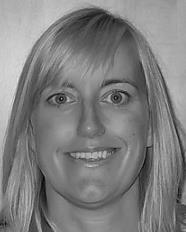
We work at NHS Lanarkshire. As part of a #ThinkActivity improvement project, at Kello Hospital, we have developed an Activity Passport to support people to improve their health and well being.
When people have been unwell or are in hospital they spend more time sitting or lying down[1]. This has an effect on their strength and balance[2]. When people start to move again it can take longer to build their muscle strength and sometimes they never regain their previous level of function[3].
Recently Dr Juliet Harvey published an infographic [4] highlighting the impact that having a fall and breaking an arm had on one person’s activity levels. This person was physically able to move around independently, however, their movement significantly decreased during their hospital stay and in the weeks following discharge compared to 4 weeks before.
Knowing that a hospital stay could have an effect on the outcomes for patients we wanted to make improvements to help to support people to maximise their opportunities to return to their previous function.
We spoke to patients about what mattered to them when in hospital and they identified that they would like to move more on the ward and have more opportunities to take part in various activities that supported their mental and physical health and wellbeing.
As a result of patient and staff feedback and Activity Passport was developed with patients. Patients clearly stated they wanted to have the opportunity to be involved in activities that mattered to them, enhance their function, put them at the centre of the planning process and to give them more control over the decisions that were made around their health and wellbeing.
Patients were keen to return to their normal routine as quickly as possible. Their care can be personalised to the time that they would like to get up and go to bed. For example, we have found that often the ward routine meant that patients were in bed before the 10 o’clock evening news but some people said that they liked to stay up and catch up on the events of the day. Some people liked to get up and get dressed early as they were used to this routine. The staff have changed their working habits to support these improvements.
Many patients said that exercise was key to their recovery in hospital. There was a consensus that they did not feel that they were able to do enough on their own. Patients requested opportunities to take part in gro
up exercises as they felt this would not only help their physical health but would give them social contact.
The Activity Passport has been found to be helpful to encourage people to continue to remain active when they return home. Knowing if they like to exercise on their own or in groups and what activities they enjoy, can help therapy staff plan what community resources may support them when discharged from hospital.
My Personal Plan enables patients and staff to identify how they will reduce their sedentary behaviour whilst in hospital. They can set goals together with therapy staff about how often they will stand up and how long they will spend moving. All of the multidisciplinary team and their families/friends are able to support the person to move as often as possible.
The clock enables them to record their progress.
[1] Grant PM, Granat MH, Thow MK, et al. (2010) Analyzing free-living physical activity of older adults in different environments using body-worn activity monitors. J Aging Phys Act 18: 171–184.
[2] Skelton D (2018) Strength and balance for health lecture East Midland and Trent Falls Symposium Monday 25th June 2018.
[3] Clegg et al (2013) Frailty in elderly people Lancet. 2013 Oct 19;382(9901):1328
[4]Harvey et al (2018) What happened to my legs when I broke my arm http://www.aimspress.com/article/10.3934/medsci.2018.3.252/fulltext.html
#ThinkActivity – Using Activity Passports to support people to improve their health and wellbeing
#ThinkActivity – Using Activity Passports to support people to improve their health and wellbeing https://www.careopinion.org.uk/resources/blog-resources/23-images/44cbf4eae21a47c0b3b34cbfbcdd439c.png Care Opinion 0114 281 6256 https://www.careopinion.org.uk /content/uk/logos/co-header-logo-2020-default.pngUpdate from NHS Lanarkshire
Posted by Lianne McInally, Senior Improvement Advisor, NHS Lanarkshire, NHS, on
About: NHS Lanarkshire
Thanks for your feedback.




